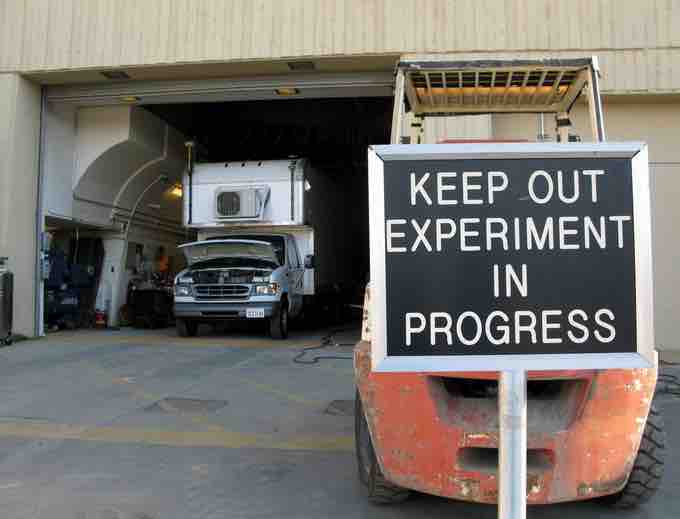Scientists form a hypothesis, which is a prediction or an idea that has not yet been tested. In order to prove or disprove the hypothesis, scientists must perform experiments. The experiment is a controlled test designed specifically to prove or disprove the hypothesis . Before undertaking the experiment, researchers must attempt to identify everything that might influence the results of an experiment and do their best to neutralize the effects of everything except the topic of study. This is done through the introduction of an experimental control: two virtually identical experiments are run, in only one of which the factor being tested is varied. This serves to further isolate any causal phenomena.

An Experiment
An experiment is a controlled test designed specifically to prove or disprove a hypothesis.
Of course, an experiment is not an absolute requirement. In observation based fields of science, actual experiments must be designed differently than for the classical laboratory based sciences. Due to ethical concerns and the sheer cost of manipulating large segments of society, sociologists often turn to other methods for testing hypotheses.
Since sociologists do not seek to isolate variables in the same way that hard sciences do, this kind of control is often done via statistical techniques, such as regressions, applied after data is gathered. Direct experimentation is thus fairly rare in sociology.
Scientists must assume an attitude of openness and accountability on the part of those conducting an experiment. It is essential to keep detailed records in order to facilitate reporting on the experimental results and provide evidence of the effectiveness and integrity of the procedure.